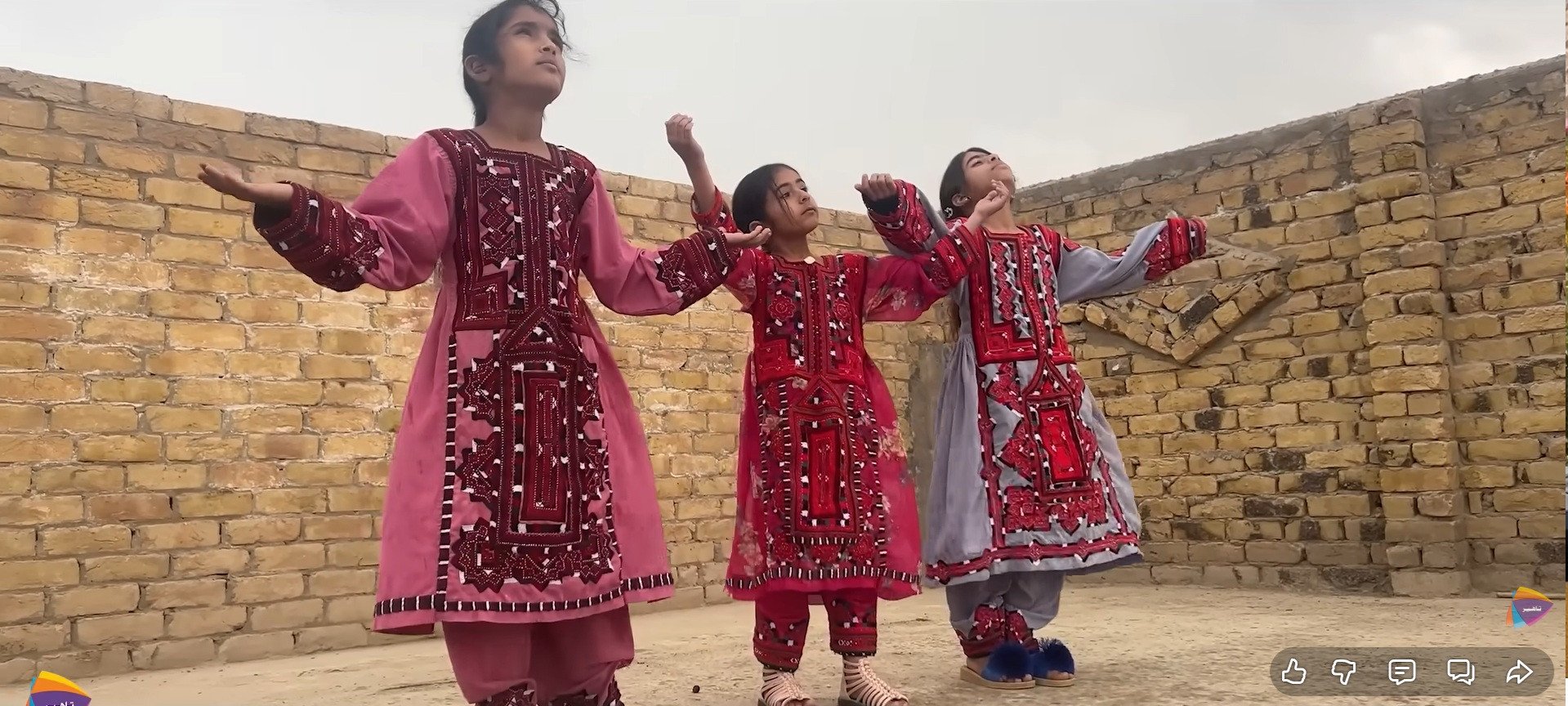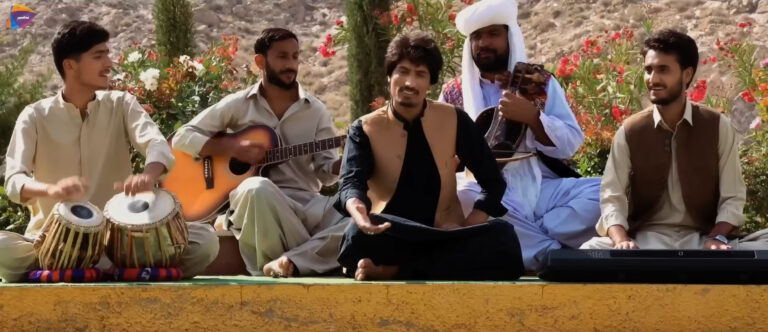PUBLISHED
November 09, 2025
Crafting compositions and creating space for children’s participation in music, Thaheer Production has been shaping a much-needed revolution in Balochi literature since 2016, amidst the snow-capped mountains of Quetta and the elegant landscapes of Balochistan.
The Balochi word “Thaheer” means “solace.” Fittingly, Thaheer Production’s artistic creations and compositions offer comfort to listeners of all ages in the region. It was co-founded by Farooq Baloch and Azam Baloch, with Obaid later joining the production company. Azam Baloch is a mixer and Obaid a guitarist, and both use their creativity to enhance the sound of each project.
“Our most important aim is to generate a platform for Baloch singers and artists to contribute uniquely to Balochi music,” says Azam Baloch. “Balochistan is full of young talent, but the raw talent needs refining. Our kids are far behind in the Balochi language, and such inventive work is not taught in schools.”
Thaheer Production hopes to showcase the creative arts and compositions of young people from across the vast province of Balochistan. Baloch is concerned that while little children recite English nursery rhymes, they have no clue about Balochi poetry. For this reason, the Thaheer team has decided to include Lab and Lacha on their platform, in order to introduce music to a wider group of children. “Children must sing Balochi poems in school and learn the Balochi language,” says Baloch.
“Music and literature are two different things, and we would like to see young people in Balochistan become familiar with their provincial language, music, and literature,” says Baloch. “We take inspiration from our society and culture to create themes for songs and videos based on our cultural needs. While documenting the Danko project, we filmed a site and displayed our cultural items through video, connecting everything to music. Lyrics, I believe, are the soul of music.”
Discussing the meaning of Thaheer, Baloch explained, “It means relief and solace, so dancing, music, culture, and art must aim to provide that. We are proud to be producing such music for our listeners.”
The team is working to develop and streamline foundational learning in the field of music so that, in future, children can use their talent to earn money as regional singers. Baloch believes that the music industry lacks meaningful struggle and structure to nurture such growth. “We are planning to shape Thaheer Production into an institution where children can learn modern forms of music and literature,” he says. “Learning, not copying, is the source of creativity. That’s why we want Thaheer Production to be a school for children to study creative work.”
“We use a variety of instruments in our music, such as the soroz, drums, banjo, tamborag, codes, and guitars — so that everyone can enjoy the lyrics and understand the music,” Baloch continues.
“Many people still love Man shapan roch, mahan saal kana, our first effort composed in 2017,” shares Baloch. “Our journey into music has since produced many tunes and compositions for our audience.”
It is true that their audience inspires them to create even more beautiful music. For Thaheer, this is a journey filled with love and passion for Balochi literature. In a short period of time, they have produced a variety of compositions that are popular across Balochistan. They work not for profit but out of love and devotion to Balochi literature — producing fewer, but unforgettable, compositions.
Thaheer Production has become the home of every Baloch artist, offering people — especially children — a place to turn to whenever they need solace and food for the soul.
Farad Fida is a bright young singer with a pleasing voice who sings Balochi song covers and uploads them on TikTok.
“My son frequently sings and everyone loves to hear him,” says Fida’s father, who wants his son to formally learn music.

In Balochistan, where there is a lack of government support and ongoing financial crisis, Thaheer Production provides aspiring artists a platform to sing and encourages them to pursue artistic opportunities in music and literature — irrespective of gender.
Sainkal and Horo Horo from the Laib Lacha series are beautiful songs performed by Keegad Baloch, Sadganj Baloch, Banadi Baloch, and Seemak Baloch — young children who are making powerful contributions to Balochi music.
“My father taught me how to sing,” says Keegad Baloch, Obaid’s daughter and the singer of the Laib Lacha series. “He is my only role model in all aspects of life because he sincerely inspires and supports me. It is his encouragement that allows me to participate in school programmes related to music.”
Sadganj Baloch, another child who performs alongside Keegad, became interested in singing after listening to her.
“We are grateful to Thaheer Production because this platform has encouraged and nurtured us,” says Banadi. “It gave us a unique opportunity to enhance and showcase our talents.”
The gratitude expressed by these children reveals that Thaheer Production does more than just create music. It helps people find comfort from pain and suffering, preserves culture, and gives voice to those who otherwise remain unheard.
All facts and information are the sole responsibility of the writer
The writer is a lawyer based in Turbat, Balochistan. He tweets @MunajGul , and can be reached at munaj1baloch@gmail.com.

